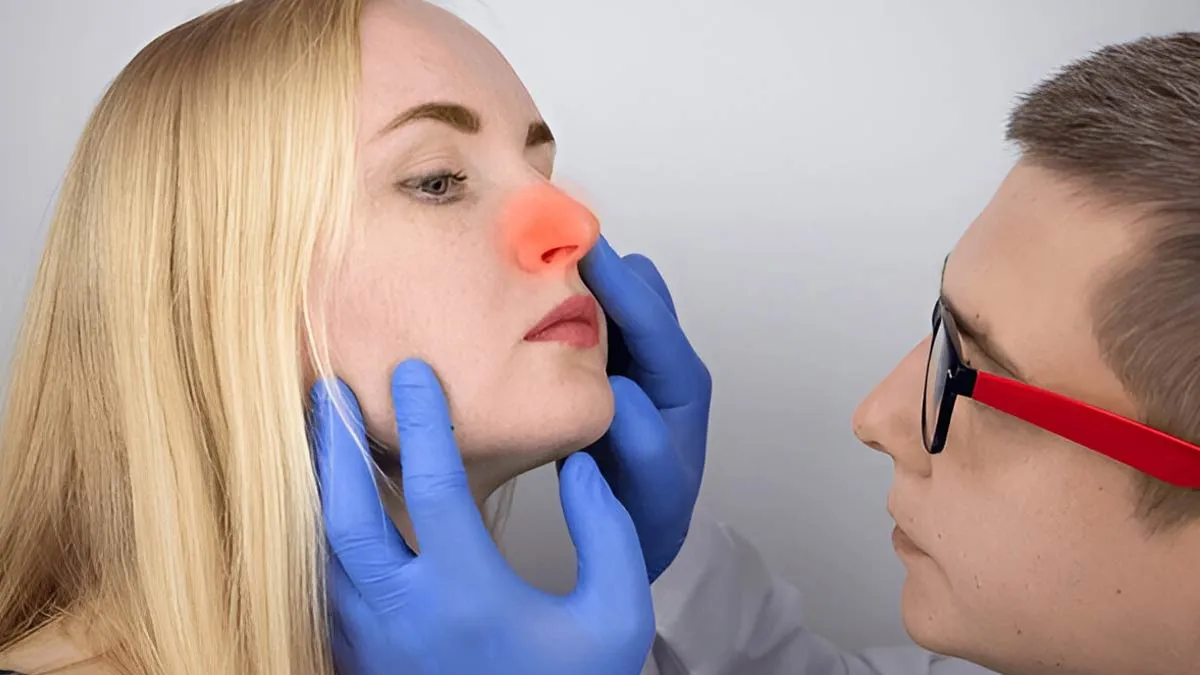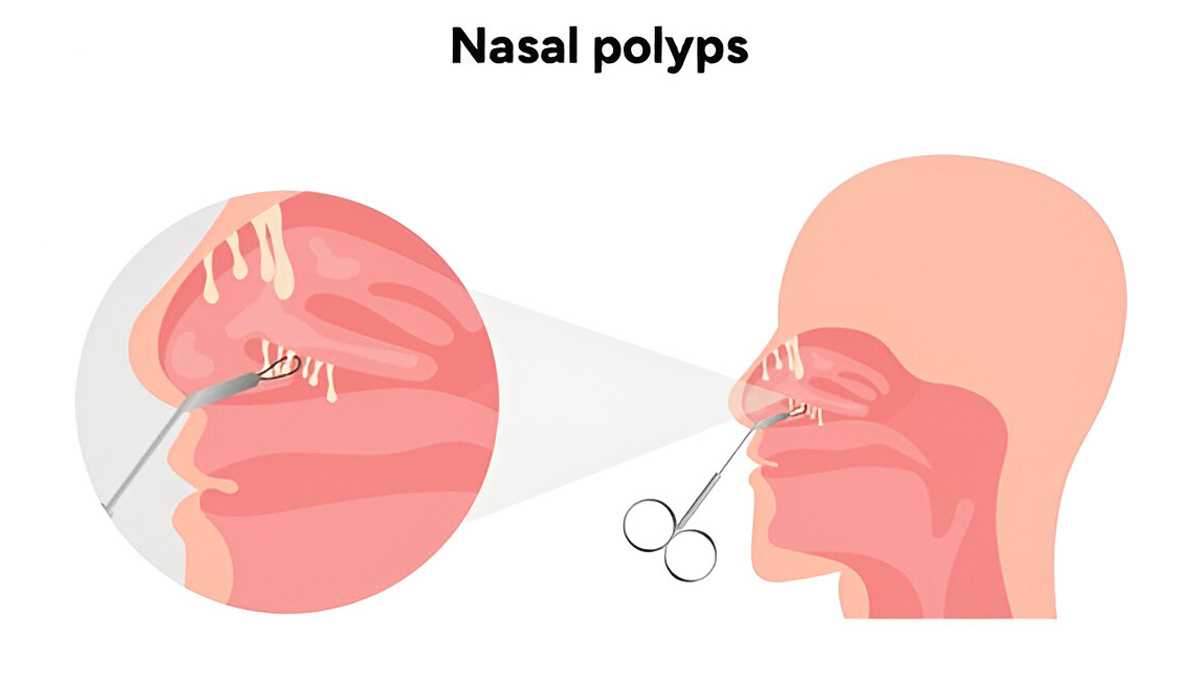欧博官网Trouble Breathing Through Your Nose? 10 Things
Doctor Verified
Trouble Breathing Through Your Nose? 10 Things To Know About Nasal PolypsA stuffy nose that never clears up? It might be nasal polyps. Learn key facts, symptoms, and treatment options to breathe easier.
SHARE
FOLLOW

Do you ever feel like you're stuck with a perpetual stuffy nose, no matter the time of year or how many tissues you go through? It's like your nose is constantly congested, and you're forced to breathe through your mouth. Your sleep is disturbed, sense of smell gone, and even simple things like enjoying your favorite foods are compromised. If this is all too familiar, you may have nasal polyps - soft, benign growths in your sinuses or nasal passages that make every breath a chore.
We spoke to Dr Arun Wadhawan, Senior Consultant and Head, ENT, Asian Hospital, Faridabad, who explained what nasal polyps are, why do they occur, and how to treat them.
10 Things You Should Know About Nasal Polyps1. What Are Nasal Polyps?
"Nasal polyps are teardrop-shaped, noncancerous growths that develop in the lining of your sinuses or nose. They tend to occur in clusters and can obstruct airflow, which makes breathing through your nose difficult," said Dr Wadhwan.
According to StatPearls, nasal polyps are most frequently observed in individuals with Chronic Rhinosinusitis (CRS), which is why the term ‘chronic rhinosinusitis with nasal polyposis’ (CRSwNP) is commonly used in reference to these growths. Nasal polyps are also associated with other disorders like Aspirin-Exacerbated Respiratory Disease (AERD), some systemic vasculitides, and cystic fibrosis.
2. Why Do They Develop?
"The exact cause isn’t fully understood, but chronic inflammation is a major factor. Conditions like sinus infections, allergies, asthma, aspirin sensitivity, and even vitamin D deficiency can increase your risk. A family history of nasal polyps may also play a role," said Dr Wadhawan.
Also Read: From Allergies to Asthma, These Conditions Can Trigger Nasal Polyps
3. Who Is at Risk?Not everyone with sinus issues will develop nasal polyps. People with asthma, chronic allergies, cystic fibrosis, or frequent sinus infections are more prone to them.
4. Symptoms to Watch ForMany nasal polyps are small and go unnoticed. But larger ones can cause:

Persistent nasal congestion or blockage
Loss of smell and reduced sense of taste
Frequent sinus infections
Runny nose and postnasal drip
Headaches or pressure around the cheeks, eyes, and forehead
Snoring or sleep disturbances
Upper tooth pain or nosebleeds
If these symptoms persist for more than two weeks, it’s worth seeing an ENT specialist.
5. How Nasal Polyps Affect Breathing
“Large polyps can completely clog up nasal passages, forcing you to breathe through your mouth. This can lead to snoring and even sleep apnea, a serious condition where breathing repeatedly stops during sleep. Chronic sinus infections and a strong link with asthma make breathing even harder for many patients,” added Dr Wadhawan.
6. Do They Go Away on Their Own?Unfortunately, nasal polyps rarely disappear without treatment. They usually require medication and, in severe cases, surgery.
7. Treatment Options AvailableMedications: Nasal corticosteroid sprays are the first line of treatment to reduce inflammation and shrink polyps.
Oral or Injectable Steroids: In more severe cases, short-term oral steroids may be prescribed.
Surgery: If medicines fail, endoscopic sinus surgery is done to remove polyps and increase air flow. It works and is least invasive, but polyps can grow back, so follow-up visits are necessary.
8. Can You Prevent Nasal Polyps?Although not always avoidable, Dr Wadhawan shared the following steps can lower your risk:

Manage allergies effectively.
Stay away from irritants such as cigarette smoke and air pollution.
Treat sinus infections promptly.
Use nasal saline rinses regularly.
Keep indoor air moist with a clean humidifier.
Also Read: The Hidden Dangers Of Nasal Polyps: Why A Stuffy Nose Isn't Just A Cold?
9. What About Children?Polyps in kids are rarer but need to be addressed, particularly if they are linked to asthma or cystic fibrosis. Surgery might be suggested in these circumstances.
10. When to See a DoctorDon't ignore breathing trouble, loss of smell, or pain in the sinuses if they don't go away. Early intervention can avoid complications such as sleep apnea or ongoing infections.
Bottomline"A congested nose that won't clear may be more than allergies. Nasal polyps are treatable with early intervention, so don't wait until breathing is a daily chore," said Dr Wadhawan.
Read NextIs It True That Lupus Symptoms Improve With Age? What Research Suggests
Disclaimer
All possible measures have been taken to ensure accuracy, reliability, timeliness and authenticity of the information; however Onlymyhealth.com does not take any liability for the same. Using any information provided by the website is solely at the viewers’ discretion. In case of any medical exigencies/ persistent health issues, we advise you to seek a qualified medical practitioner before putting to use any advice/tips given by our team or any third party in form of answers/comments on the above mentioned website.
How we keep this article up to date:
We work with experts and keep a close eye on the latest in health and wellness. Whenever there is a new research or helpful information, we update our articles with accurate and useful advice.
Current Version
